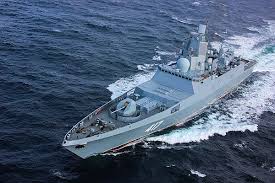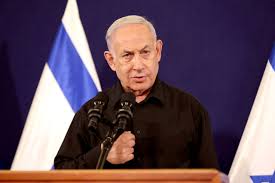MOSCOW (RIA Novosti): The withdrawal of the Americans from the Treaty on the Elimination of Intermediate-Range and Shorter-Range Missiles has led to increased mistrust and lack of reliability in relations between the Russian Federation and the United States in matters of strategic stability, and also creates additional risks in the medium and long term, experts interviewed by RIA Novosti believe.
August 2 will mark two years since the termination of the Treaty on the Elimination of Intermediate-Range and Shorter-Range Missiles (INF Treaty), concluded between the USSR and the United States in 1987. In accordance with the agreement, the parties committed themselves not to produce, test or deploy ground-based ballistic and cruise missiles of intermediate and shorter range.
The treaty entered into force on June 1, 1988, and until terminated as a result of the unilateral withdrawal from it by the United States, it was indefinite.
Trust is undermined
The US withdrawal from such an important treaty could not be positive, said Andrei Kortunov, Director General of the Russian International Affairs Council . This creates additional risks, but at the same time it must be remembered that the situation in the world has a certain inertia, the negative consequences of the US withdrawal from the treaty were more likely political and psychological than military-technical, the expert said.
“The mechanism of interaction has been destroyed. After all, a treaty, like any treaty on armaments, is a serious document, with checks, military meetings, expert consultations. This is a machine that creates a situation of greater predictability, stability, reliability in relations, an element of a common strategic culture. To destroy it – accordingly, all this goes away. It is very difficult to restore it, “he said.
The situation for Russia , of course, changed with the withdrawal of the Americans from the treaty, the expert emphasized.
“We have a worse idea of American intentions and plans, but they have a worse idea of our intentions and plans. They also had questions to Russia about certain provisions of the treaty, now they are hanging in the air, since we are no longer obliged to answer them, as was the case with Of course, there has been a significant deterioration. If we had a lot of agreements, say, a dozen, then one more, one less. And now the opportunity to maintain a dialogue has been cut in half, “Kortunov said.
The consequences of the withdrawal affect the perception of the two countries in terms of reliability, transparency, trust, confidence in each other, Kortunov stressed, adding that it is necessary to look at the situation as a whole.
“There was INF Treaty, then Russia and the United States withdrew from the Open Skies Treaty. So, unfortunately, we have nothing to boast about, but we need to somehow minimize the damage,” he summed up.
Uncertainty increased
According to Ivan Timofeev, Program Director of the Russian International Affairs Council, Associate Professor of the Department of Political Theory at MGIMO of the Russian Foreign Ministry, the US withdrawal from the INF Treaty has no noticeable short-term consequences, but in the medium and long term it will have a negative impact on international security and strategic stability in Russian-American relationship.
“So far, neither Russia nor the United States has deployed a significant number of such systems in Europe or Asia . But in the future this may happen. The Americans can deploy such systems in Europe. They may at some point raise the question of deploying their systems in Asia to contain China.” – he explained.
Timofeev recalled that Russia came up with an initiative for a moratorium on the deployment of such systems in Europe, while there are no agreements on this matter.
If there is no agreement, then the parties develop similar systems and deploy them. The problem will arise with their deployment, because medium and shorter-range missiles have a significantly shorter flight time, Timofeev said.
“The presence of deployed systems directed against each other, of course, increases uncertainty, and most importantly, in the event of an incident, it reduces the time it takes to exhaust this incident one way or another. It’s one thing – when you have half an hour left, to prevent the opposite side, but another thing is when the flight time is five minutes … There may be unnecessary nervousness. Now, in fact, there are no international legal barriers to deploying these systems, “the expert emphasized.
So far, apparently, the system has not been developed and tested in the United States, he noted, so there is no talk of massive deployment of American medium-range missiles, Timofeev said.
The Treaty on the Elimination of Intermediate-Range and Shorter-Range Missiles (INF Treaty) expired on August 2, 2019. Russian President Vladimir Putin later announced a new initiative to resolve the situation with growing tensions in Europe after the US withdrawn from the INF Treaty. In particular, he said that Moscow is ready, of its own free will, not to deploy 9M729 missiles on the European part of the Russian Federation, but subject to reciprocal steps from NATO…. He also suggested that the alliance test Aegis Ashore complexes with Mk-41 launchers at bases in Europe and 9M729 missiles at Kaliningrad facilities. Earlier this week, the NATO summit, its participants said that they did not consider the Russian proposal for a moratorium on the deployment of intermediate and shorter-range missiles in Europe after the termination of the treaty.






